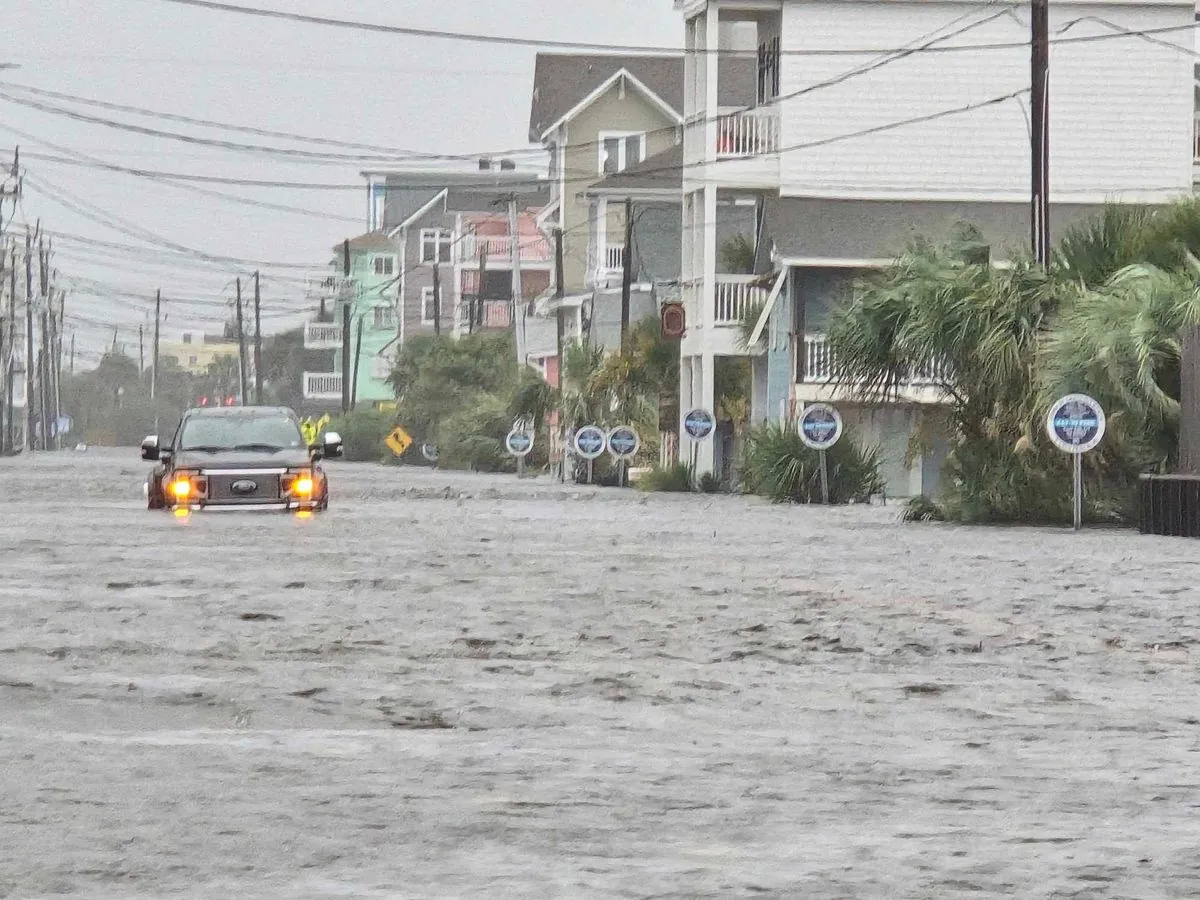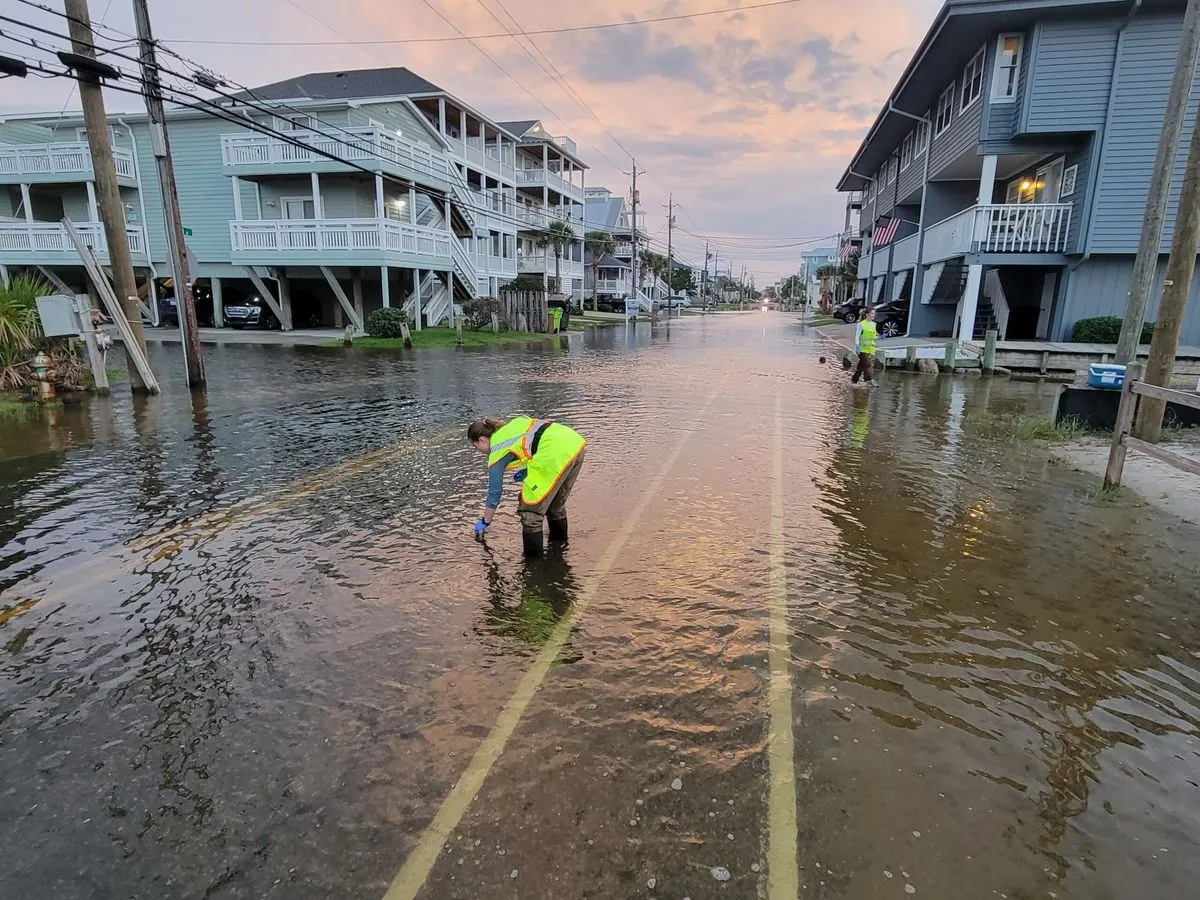Carolinas Hit by Unexpected Deluge: Climate Change's Role in Extreme Rainfall
Unprecedented flooding in Carolina Beach highlights climate change impact. Local authorities grapple with communication challenges and infrastructure damage as the region faces its fifth "flood of a lifetime" in 25 years.

The Carolinas recently experienced an unexpected deluge, with Carolina Beach bearing the brunt of what meteorologists classified as a 1,000-year flood event. This extreme weather occurrence, which took place on September 16, 2024, has once again brought the impacts of climate change into sharp focus.
Andrew Kruczkiewicz, a senior researcher at the Columbia Climate School, Columbia University, explained the connection between climate change and such intense rainfall events. "Data shows one of the strongest relationships between climate change and precipitation is that as the atmosphere warms, the capacity to hold water increases. Therefore we see more intense rainfall in a shorter period of time," he stated.
The storm, which remained unnamed as Potential Tropical Cyclone No. 8, dumped an astonishing 21 inches of rain on Carolina Beach in just 24 hours. This localized "firehose effect" caught many off guard, including local officials and weather forecasters. The National Weather Service in Wilmington reported that while their forecasts allowed for "locally higher" amounts, the actual rainfall far exceeded predictions.
Carolina Beach Mayor Lynn Barbee described the unprecedented nature of the event: "I don't think I've ever seen it rain so hard and for so long. Not rain bands that get harder and let up or a front moving through. It just sat on top of us."
The flooding caused significant disruptions, closing dozens of roads in Brunswick County, including the main coastal route, U.S. Highway 17. Emergency workers had to provide food and water to stranded motorists as floodwaters submerged large sections of the highway.
"We've developed a communication dialogue. We communicate cones of uncertainty, expected path, time of arrival, strength on the Saffer-Simpson scale. People know what to expect. But suddenly we're having storms that don't fit on these scales."
This event marks the fifth "flood of a lifetime" to hit the region in the past 25 years, following Hurricane Floyd in 1999, unnamed storms in 2010 and 2015, and Hurricane Florence in 2018. This pattern of recurring extreme weather events aligns with scientific predictions about the impacts of climate change on precipitation patterns.
As of September 18, 2024, the Atlantic hurricane season continues, with the National Oceanic and Atmospheric Administration (NOAA) predicting a highly active season due to near-record sea surface temperatures and the possibility of La Niña. Emergency management officials urge residents to remain prepared for potential future extreme weather events.

The recent flooding in Carolina Beach serves as a stark reminder of the increasing frequency and intensity of extreme weather events. As communities grapple with these new realities, the need for improved forecasting, communication, and infrastructure adaptation becomes ever more apparent in the face of our changing climate.


































